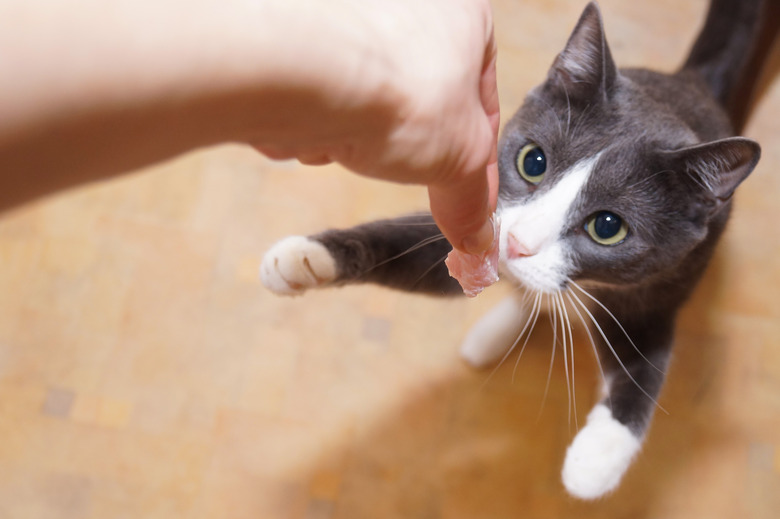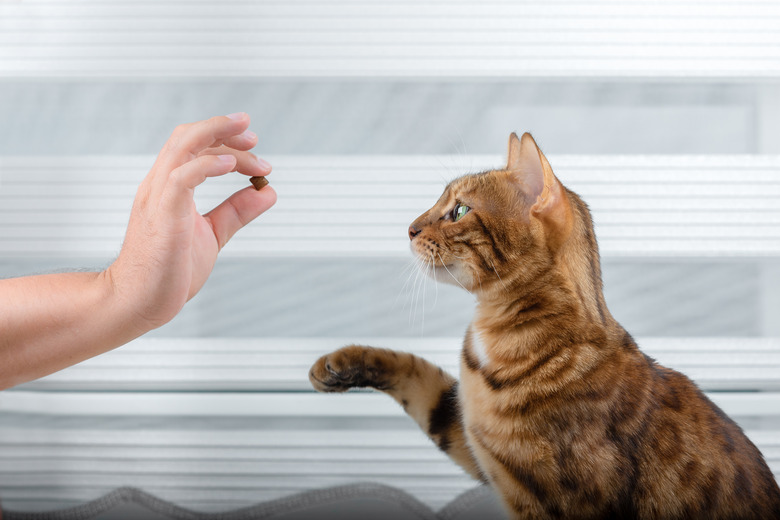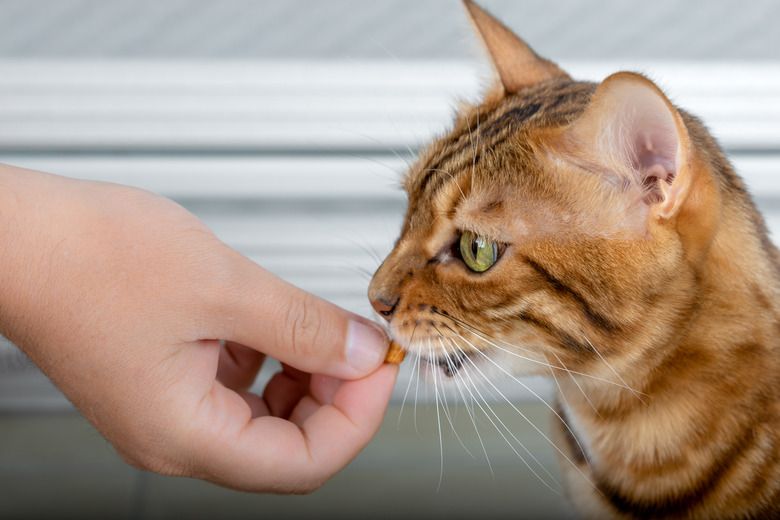How To Get Your Cat To Come When You Call
Think training a cat is hard? The fact is, most cats are already trained. As soon as they hear the sound of the can opener, or the crinkle of their bag of food, they are eagerly rushing for the vittles. Chances are, no one trained them to come when they hear their food being set out. They learned this on their own, and quickly too. So you have every reason to expect your cat will learn to come when they hears their name or whatever phrase or sound you choose to use to get their attention. All it takes is practice, patience, and positive reinforcement.
Understanding what motivates your cat
Understanding what motivates your cat
Whether you use your cat's name, "here kitty," or some other phrase or sound, they hear your call and make the decision either to leave where they are cozily curled up, or not. To decide to come to you, they need a good reason to disturb whatever they are doing. Food rewards are usually a good reason to a cat, especially something you don't often feed them; that way, they really are treats that they will be excited to receive. If you already give them treats regularly just because you love them, it's a good idea to stop that at least during training, so they are not confused about why they are getting a reward.
Always use positive reinforcement
Always use positive reinforcement
Always, always use positive reinforcement with your cat rather than scolding or punishing. This goes for training and for all interactions you have. Research has shown that animals respond far better to praise and rewards than to negativity of any kind, just as people do. If you call your cat, and they know there could be a treat in it for them, they are much more likely to respond to you than if they think they might get yelled at. Positive reinforcement is an actual method of training, and it is a way to build a strong, trusting bond with your cat for life.
Prepare the cat's environment for training
Prepare the cat's environment for training
if possible, use a different room for training, away from where the cat eats and sleeps, and don't hold training sessions at mealtime. That way, they will come to have a positive association with that area and the training. Remove distractions from the area and make sure you have all the materials you will need out and ready to go. Some trainers recommend using a device called a "clicker," because it makes a distinctive sound that cats will recognize from their training sessions and remember what to do when they hear it. It's up to you whether you want to try clicker training or only use your cat's name. (You can find clickers at pet stores or online.)
Have your food rewards ready, whether you buy treats or make your own. An easy one is to freeze small pieces of meat, and unfreeze a few before each training session. During training, reduce the amount you feed your cat during meals to account for the extra calories of the treats.
Keep each training session short and fun
Keep each training session short and fun
It's better to hold short training sessions, five minutes or less, and hold them more often than longer ones where the cat can become stressed or bored. Training should always be fun for both of you. The training itself is very simple. Call your cat and see if she will appear; if they don't, take a treat with you and continue to call their name while you look for them. When you find them, show them the treat but don't give it to them yet. Hold out the treat so they follow you as you lead them to the training space. Once you are there, say their name several times, praise them, and give them the treat. If you are using a clicker, click it when they get to the space.
Repeat this activity after they walk away. Call their name or use the clicker and see if they respond. Have a treat ready and reward them with it if they come to you on their own. If not, go through the steps of finding them and leading them to the training area and give them the treat. Hold training sessions at least once a day so you both get lots of practice. It may take time, but before long, they will come quickly when called because they knows they will be rewarded with a yummy treat.


